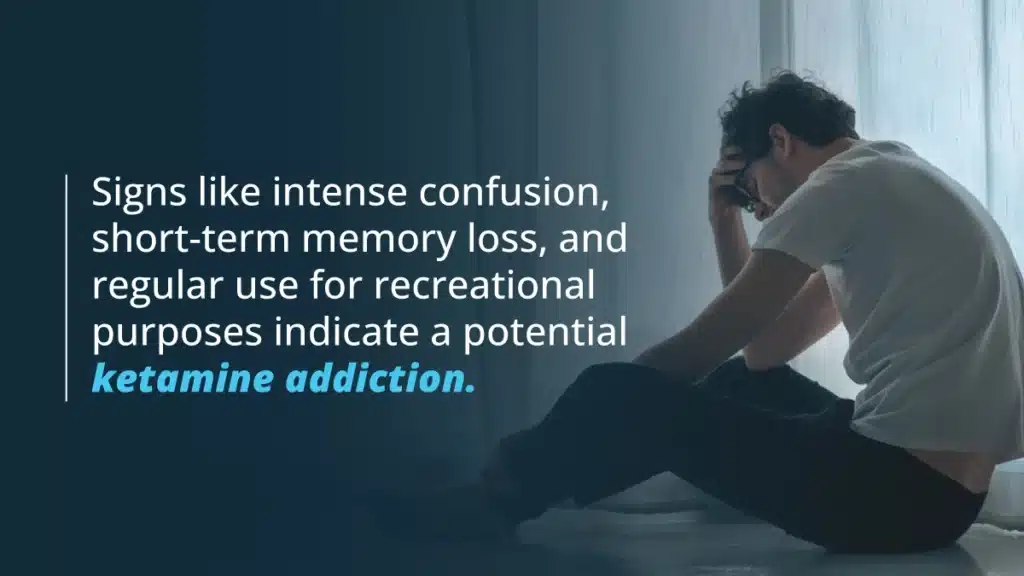The Hidden Risks of Ketamine Abuse
Teen life can be tough, with pressures and challenges at every turn. Some teens may turn to substances like ketamine. Ketamine abuse is a serious concern, impacting both physical and mental health.
Ketamine is a powerful anesthetic that, when misused, can lead to addiction hallucinations and affect teen brain development. It’s crucial to understand the risks and seek help if you or someone you know is struggling with ketamine abuse. Remember, there are healthier ways to cope with the challenges of teen life.
Treatment Services
If you or someone you know is struggling with ketamine’s effects, seeking help through a treatment program is crucial. Various services are available to support recovery, such as detox, residential rehab, group therapy, family therapy, and art therapy. These programs, conducted under medical supervision, aim to address ketamine addiction’s addictive potential and negative impact on mental health. Family therapy can enhance communication and understanding, while group therapy provides a supportive community.
Residential rehab offers a structured environment for teens to create new, healthy coping mechanisms and prepare for their future. Counseling sessions during their stay at the facility help break the cycle of substance use disorders. Art therapy creatively engages individuals, promoting mental well-being and exploring potential treatment avenues.

Key Takeaways
Ketamine abuse poses severe risks to physical and mental health, requiring holistic treatment. Here’s what you need to know:
- It is vital to recognize the signs of abuse, such as cognitive impairment, to seek professional help.
- Various causes and risk factors trigger drug abuse, leading to severe effects.
- Multifaceted treatment options, such as detox, are available to overcome ketamine addiction.
Our teen treatment center is here to help your child break free from addiction. Call us today at (845) 479-6888.
Symptoms of Ketamine Abuse
Ketamine abuse can lead to various symptoms, affecting both physical and mental health. Young people experimenting with this dissociative drug may experience a range of issues. Some street names for ketamine include “K,” “Special K,” or “Cat Valium.” Symptoms of ketamine addiction may include:
- Taking more than intended, seeking prolonged or intense hallucinogenic effects.
- Feeling detached from oneself, as if observing from outside (K-hole).
- Unexplained and extreme stomach discomfort, signaling potential ketamine misuse.
- Persistent sadness, low energy, and feelings of hopelessness are linked to ketamine abuse.
- The decline in memory, focus, and decision-making due to ketamine’s impact on brain function.
- Coordination problems, unsteady movements, affecting physical capabilities.
Ketamine’s short-acting nature and dissociative properties can exacerbate mental health problems and substance abuse. It is vital to recognize symptoms of ketamine addiction, such as recreational drug use and cognitive impairment, for effective intervention. Young people are particularly vulnerable, and symptoms of ketamine overdose may include severe physical and mental distress. Seeking professional help is essential to address the impact of ketamine abuse on overall well-being.
When to Seek Treatment
If you or someone you know is experiencing the effects of ketamine addiction, seeking treatment is essential. Signs like intense confusion, short-term memory loss, and regular use for recreational purposes indicate a potential problem. Whether it’s in the form of street ketamine or liquid, the dissociative anesthetic nature of the drug poses risks.
If an individual cannot spend their day without taking large doses of ketamine, then it is time for ketamine addiction treatment under medical care. Don’t underestimate the impact of recreational drug use on mental health. If you notice these signs, reaching out for professional help can make a significant difference in addressing and overcoming drug addictions.
If a Loved one Needs help
If someone you care about is struggling with the abuse of ketamine, it’s essential to help them explore treatment options. Signs like a higher dose of ketamine leading to an out-of-body experience may indicate a serious problem. Approach your loved one with empathy, expressing concern about their well-being. Encourage open communication and let them know you’re there to support them. Suggest seeking professional help to address the challenges they’re facing. Remember, supporting a loved one through the process of acknowledging and tackling ketamine abuse is a crucial step toward their well-being and recovery.
Causes of Ketamine Abuse
Ketamine abuse has grown in the United States, impacting people from various backgrounds. Its popularity in the club scene, often sold as a white powder, has led to a high chance of misuse. Understanding the root causes of addiction is crucial for prevention and intervention.
Social Influence
The party and club scene plays a significant role in ketamine’s popularity, contributing to its misuse. Teens seeking a trance-like state may be drawn to its hallucinogenic effects. Unfortunately, in this environment, the risk of overdose and exposure to other drugs of abuse is heightened.
Mental Health Factors
Ketamine abuse and addiction often intertwine with mental health challenges, especially treatment-resistant depression. Some individuals may turn to ketamine to cope with underlying mental illnesses such as depression. However, the drug’s impact on motor function and potential side effects exacerbate existing mental health issues, creating a harmful cycle that requires attention and support.
Accessibility and Peer Pressure
Easy accessibility to ketamine in social settings, coupled with peer pressure, contributes to its misuse. The drug’s prevalence in the party scene and its association with an altered mental state can lead to experimentation and, in some cases, a dangerous reliance. Recognizing the connection between ketamine abuse and its impact on mental and physical well-being is crucial for addressing this growing concern.
Risk Factors of Ketamine Abuse
Ketamine abuse poses various risk factors that contribute to its misuse and negative consequences. In social settings like clubs, where it is often classified as one of the “club drugs,” the recreational use of ketamine is prevalent. Environmental factors, such as the use of the drug at home or its illicit use among students, play a significant role in its abuse.
Genetic and psychological factors also contribute to substance use disorders among teens. Individuals may experience severe abdominal pain, a consequence of its dissociative nature. Moreover, the risk of respiratory failure is heightened with ketamine abuse, underscoring the severe health implications associated with this substance. Understanding these risk factors is essential for developing effective prevention and intervention strategies.
Effects of Ketamine Abuse
The effects of ketamine abuse can be severe, especially when taken in high doses. It can lead to a near-death experience, impacting both physical and psychological well-being. Long-term use of ketamine may contribute to high blood pressure, heart rate issues, and chest pain.
Moreover, its psychological effects can exacerbate symptoms of depression. Hallucinogenic drugs like ketamine can induce intense highs but also pose risks of overdose. Understanding these physical sensations and associated dangers is crucial for those dealing with or struggling with drug abuse and emphasizes seeking professional help for a healthier and safer lifestyle.
Treatment of Ketamine Abuse
Ketamine abuse can have serious consequences on both physical and mental health. Addressing this issue requires a holistic approach, with medical detox, inpatient residential rehab, and behavioral therapies playing pivotal roles in the recovery process.
Medical Detox
Medical detox is often the first step in treating ketamine abuse. It involves supervised withdrawal in a controlled medical setting. This process helps manage withdrawal symptoms and ensures the patient’s safety. Medical professionals closely monitor vital signs, providing necessary medications to ease discomfort during this crucial phase.
Inpatient Residential Rehab
For individuals with severe ketamine abuse issues, inpatient residential rehab offers a structured and supportive environment. Patients reside at the facility, receiving round-the-clock care and supervision. This immersive approach allows for intensive therapy sessions and focuses on breaking the cycle of ketamine dependence. Inpatient rehab provides a safe space for patients to distance themselves from triggers in their daily lives.
Behavioral Therapies
Behavioral therapies, including cognitive behavioral therapy (CBT), are integral components of ketamine abuse treatment. CBT aids individuals in identifying and changing negative thought patterns and actions associated with substance abuse. Therapists work collaboratively with patients to develop coping strategies, empowering them to navigate challenges without resorting to ketamine use.
In addressing ketamine abuse, it’s essential to understand that behavioral therapies are tailored to the individual’s needs. Group therapy sessions also foster community among patients, providing support and encouragement throughout recovery.
Frequently Asked Questions (FAQ)
How does ketamine abuse affect the body and mind?
Ketamine abuse impacts both the body and mind. Physically, it can lead to elevated heart rate, increased blood pressure, and urinary tract issues. Mentally, individuals may experience confusion, hallucinations, and impaired cognitive function. Long-term abuse may contribute to memory loss and addiction.
What are the long-term effects of using ketamine?
Long-term ketamine use can lead to persistent cognitive impairments, including memory loss and difficulties with concentration. Chronic abuse may contribute to the development of mental health issues such as depression and anxiety. Additionally, repeated use can elevate the risk of developing tolerance and dependence. Physical health risks include potential damage to the urinary system.
What is ketamine abuse?
Ketamine abuse involves the misuse or excessive consumption of the dissociative anesthetic ketamine. Typically used for medical purposes, ketamine is taken recreationally in higher doses for its hallucinogenic effects. Abuse may lead to physical and mental health issues, including elevated heart rate, impaired cognitive function, and potential addiction.
Hope for Teenagers
Teens struggling with ketamine abuse are at risk of experiencing life-threatening health conditions. Our teen treatment center understands their condition and is here to offer them the services they need to live a sober life.
Our residential rehab offers group therapy, art therapy, and various recreational activities to help them learn healthy coping skills. Our staff aims to help young ones lead a healthy life.
Together, we can secure their future. Don’t hesitate to call us at (845) 479-6888.


